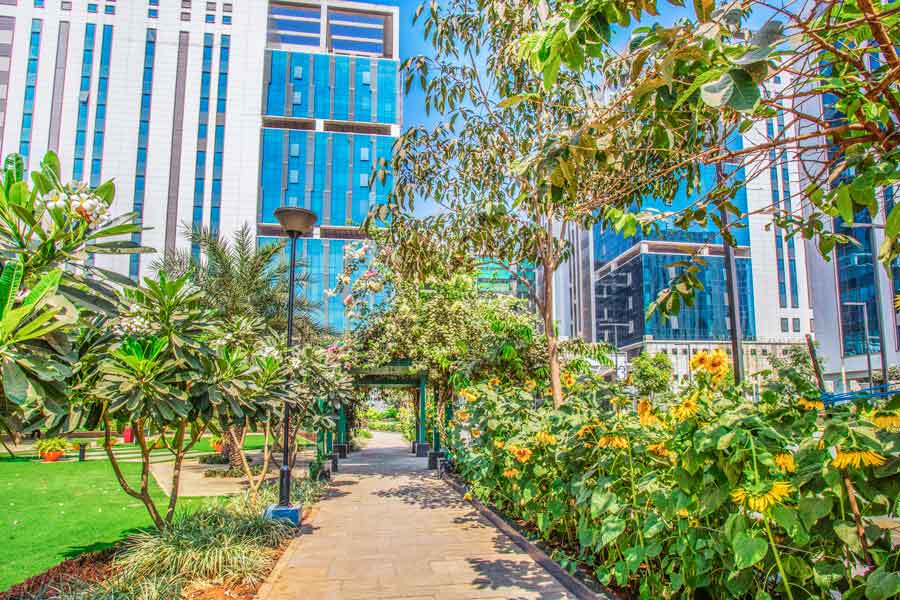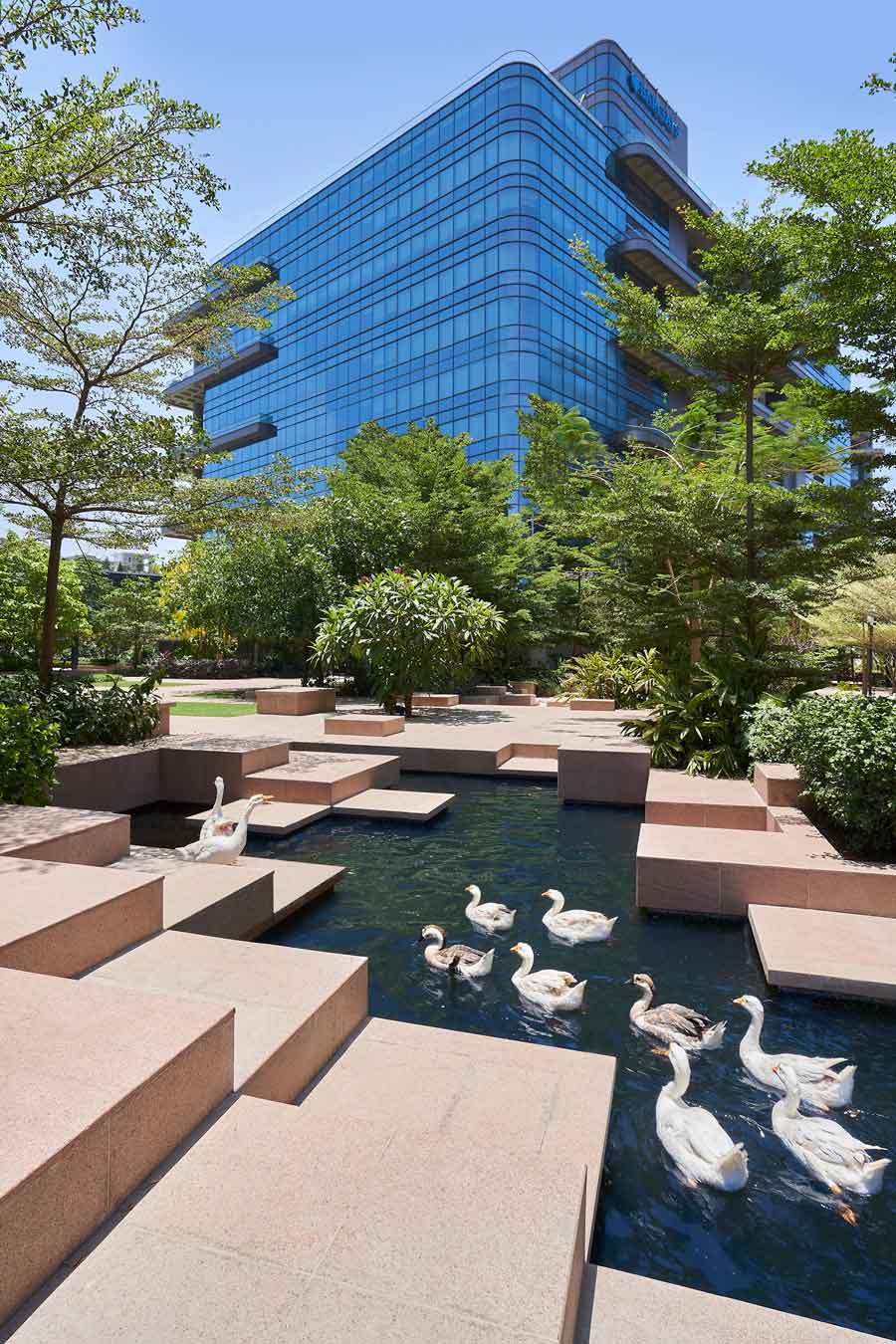CBRE Asia Pacific Research and the U.S. Green Building Council have jointly launched the Asia Pacific Real Estate Chief Sustainability Officer Survey, which provides insights from landlords and investors across the region on how they are addressing the ESG imperative, the role of the CSO in achieving their goals, and their companies’ level of preparedness in achieving net zero, as well as any obstacles that are hindering progress.Key findings include:
This report was originally published in https://www.cbre.com/insights/reports/asia-pacific-real-estate-chief-sustainability-officer-survey
Download Now Read MoreIn today's dynamic business landscape, where environmental concerns are at the forefront of global discussions, the Indian real estate sector has embraced a transformative shift towards sustainability. One of the pioneering Indian sectors – real estate is revolutionizing the industry through Grade A ecosystems of green office spaces while contributing to a thriving economy. India is currently ranked third in the world with more than 752 LEED-certified properties after China in Canada, basis USGBC Annual list.
A holistic, sustainability-driven, Grade A ecosystem is fostering business growth across India, through several initiatives:
Setting Industry Standards for Green Office Ecosystems
The real estate industry’s shift towards sustainability is marked by a growing preference for green office spaces that seamlessly blend eco-consciousness with industry-relevant standards. These spaces are designed with a deep consideration for energy efficiency, resource conservation, and reduced carbon footprint. By incorporating advanced technologies and innovative architectural designs, green office spaces not only promote a healthier environment but also set a new benchmark for industry standards, inspiring others to follow suit in creating sustainable workspaces.

Sustainable Practices at the Core
Getting these green standards in place requires collaboration. Real estate professionals, architects, environmental experts, and regulators need to join forces. They will need to establish clear metrics for energy usage, water management, indoor air quality, and all-around sustainability. Certifications offered by esteemed organizations like LEED & IGBC add weight, serving as a seal of approval for genuine green credentials. As the demand for sustainable workplaces surges, these green office space standards are pivotal. Those who construct and use these spaces are shaping a cleaner and greener future.
Preferred Choice for Organizations and Employees
Grade A green office spaces' success transcends mere adherence to environmental benchmarks; they have evolved into the favoured choice for both organizations and employees. In today's professional landscape, there is profound esteem for spaces that harmonize with sustainability-oriented principles. Consequently, employee preferences for eco-conscious work environments influence organizational decisions significantly. Abundant greenery, natural illumination, and fresh air collectively exert a positive influence on the overall work milieu, fostering heightened creativity, engagement, and job satisfaction.
Fostering Business Growth
These practices have not only resulted in positive environmental impact but also spurred humungous business growth and aided economic growth. The adoption of sustainable practices has led to the creation of jobs in various sectors, ranging from renewable energy installation to eco-friendly construction materials.
The influx of businesses into these spaces has led to increased foot traffic in areas within these ecosystems, benefiting local businesses such as cafes, restaurants, and retail stores around. The growth of these businesses, in turn, generates employment opportunities and contributes to the overall economic vitality of the region.

In conclusion
On the path to sustainability, the Grade A ecosystems within green office spaces adeptly strike a harmonious equilibrium between modern infrastructure and ecological accountability. However, the influence of these spaces extends beyond environmental preservation. Responsible businesses prioritize eco-friendly and healthy workspaces that align with their values, ensuring sustainable growth in demand for these thoughtfully designed environments.

MD & CEO - Commercial Real Estate
K Raheja Corp
During the past years, businesses have experienced a series of once-in-a-generation challenges, forcing them to re-evaluate how they operate. From COVID-19 to geopolitical instabilities, these challenges have shown that individual events, activities and decisions all have impacts that cascade throughout a value chain, potentially with global consequences.
The challenges posted by COVID-19 have underscored the true meaning and importance of ‘Business as Mutual’. No man is an island, and no business can act independently. We need to work together in order to thrive. One thing is clear: moving forward, business as usual is obsolete. We must transition to Business as Mutual.
Read MorePicture this - despite around 43% of the installed power capacity of India being renewable, coal-based thermal power still contributes to almost 75% of its power generation. However, the country is making rapid strides towards achieving its ambitious goal of meeting 50% of its energy requirements from renewable energy by 2030.
The policy push has been strong, taking cues from which prominent real estate developers have begun to take meaningful steps towards attaining their ESG goals. Renewable energy, more often than not, is the first step towards achieving ESG compliance.
Through CBRE India’s first report on renewable energy, we have tried to answer the below questions and more:
This report was originally published in https://www.cbre.com/insights/reports/sustainable-energy-powering-india-s-offices
Download the Report Read MoreIt has become clear over the last decade that environmental, social and governance risks are financial risks. What does that look like for the year ahead? The 2024 edition of MSCI’s Sustainability and Climate Trends to Watch (formerly ESG and Climate Trends to Watch) brings together the key questions that our global research team are asking, and offers thoughtful analyses and useful insights to help assess and navigate the investment landscape that lies ahead.
This report was originally published in https://www.msci.com/research-and-insights/2024-sustainability-climate-trends-to-watch
Download the Report Read More